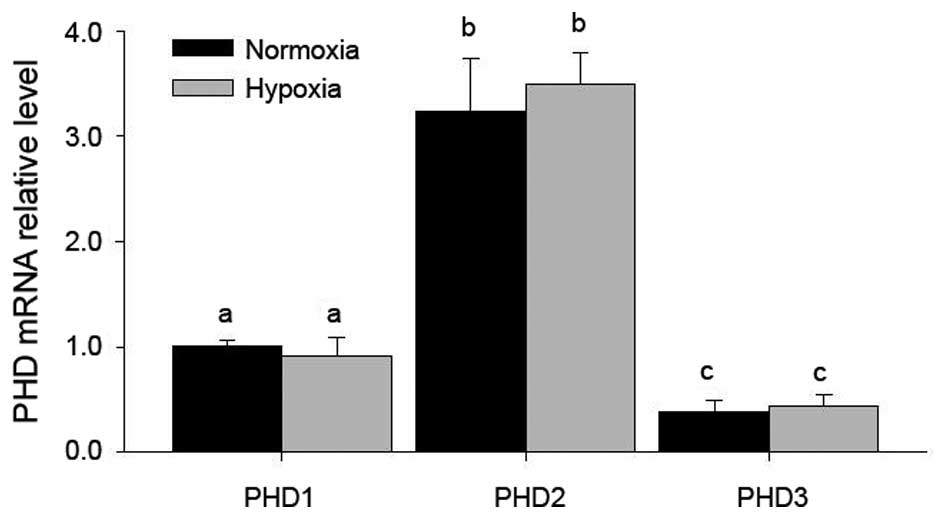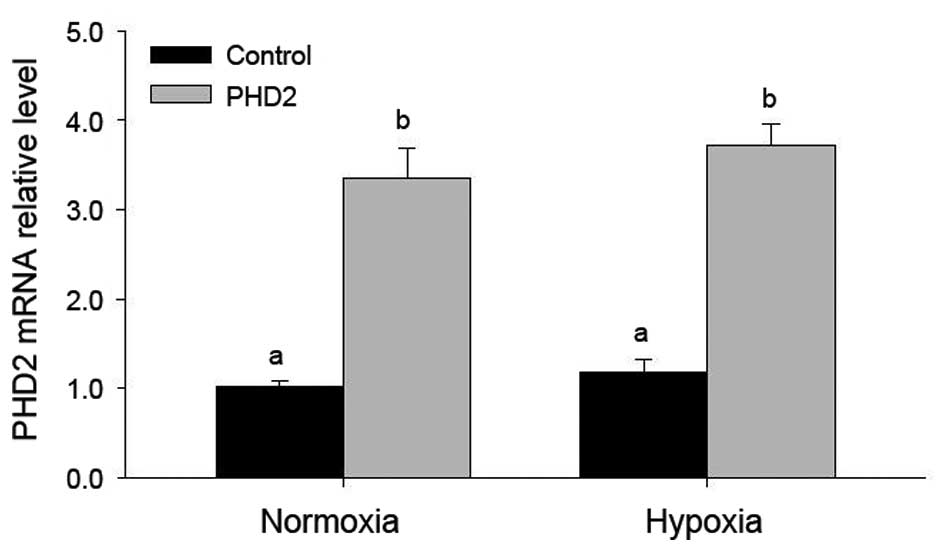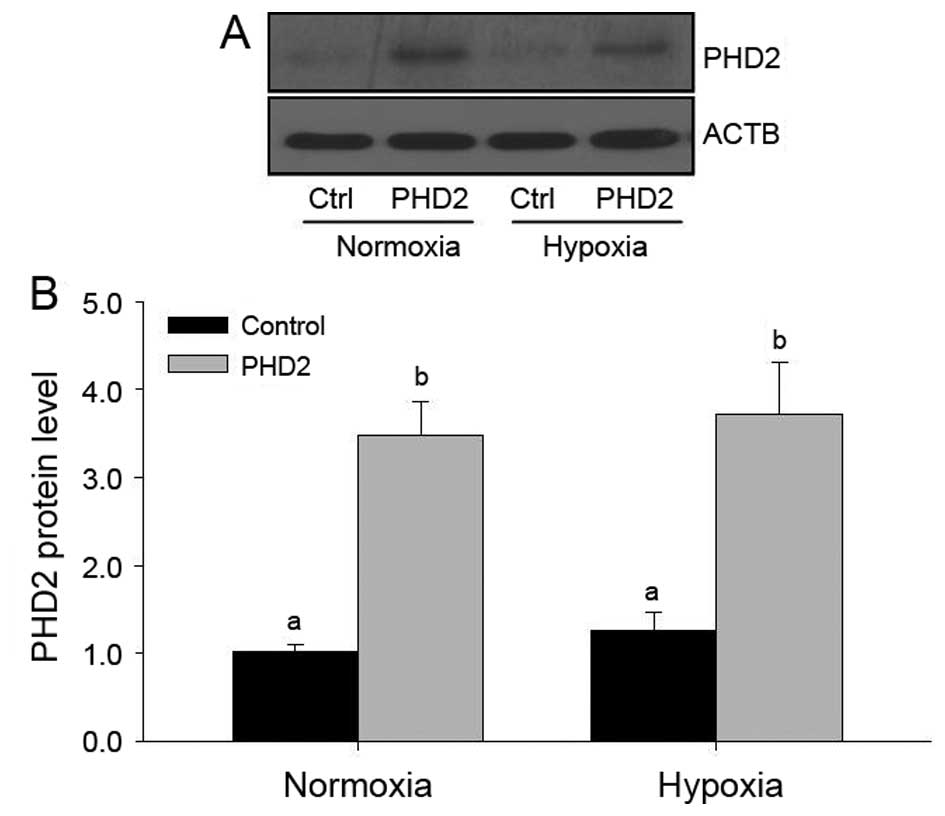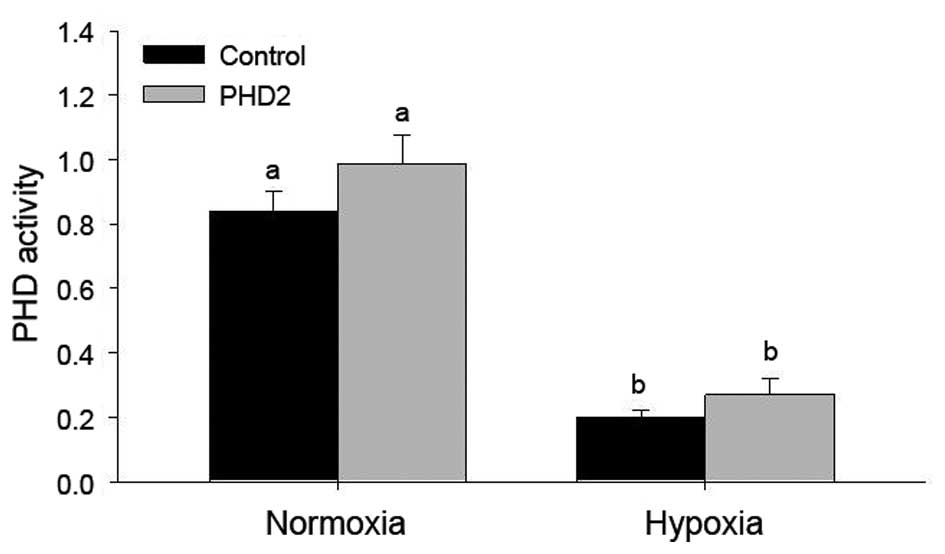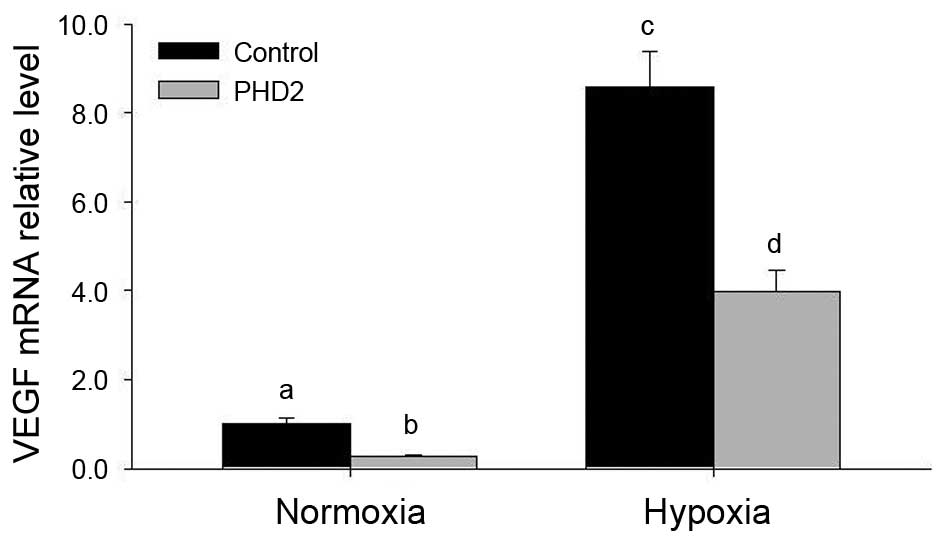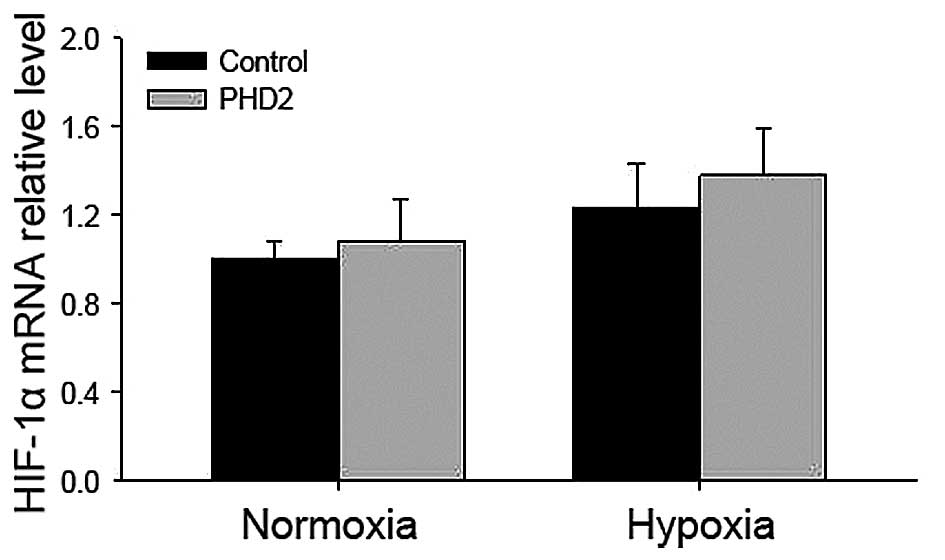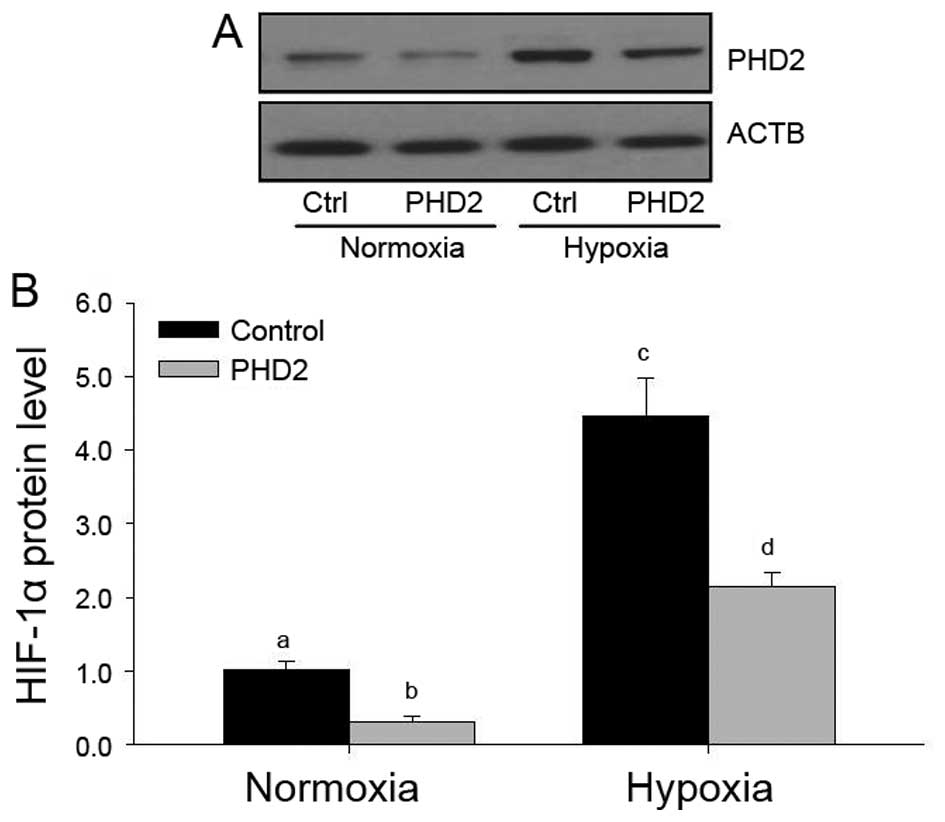|
1
|
Christenson LK and Stouffer RL:
Follicle-stimulating hormone and luteinizing hormone/chorionic
gonadotropin stimulation of vascular endothelial growth factor
production by macaque granulosa cells from pre- and periovulatory
follicles. J Clin Endocrinol Metab. 82:2135–2142. 1997.PubMed/NCBI
|
|
2
|
Kaczmarek MM, Schams D and Ziecik AJ: Role
of vascular endothelial growth factor in ovarian physiology-an
overview. Reprod Biol. 5:111–136. 2005.PubMed/NCBI
|
|
3
|
Shimizu T and Miyamoto A: Progesterone
induces the expression of vascular endothelial growth factor (VEGF)
120 and Flk-1, its receptor, in bovine granulosa cells. Anim Reprod
Sci. 102:228–237. 2007. View Article : Google Scholar : PubMed/NCBI
|
|
4
|
Shimizu T, Jayawardana BC, Tetsuka M and
Miyamoto A: Differential effect of follicle-stimulating hormone and
estradiol on expressions of vascular endothelial growth factor
(VEGF) 120, VEGF164 and their receptors in bovine granulosa cells.
J Reprod Dev. 53:105–112. 2007. View Article : Google Scholar
|
|
5
|
Wulff C, Dickson SE, Duncan WC and Fraser
HM: Angiogenesis in the human corpus luteum: simulated early
pregnancy by HCG treatment is associated with both angiogenesis and
vessel stabilization. Hum Reprod. 16:2515–2524. 2001. View Article : Google Scholar : PubMed/NCBI
|
|
6
|
Fraser HM, Bell J, Wilson H, Taylor PD,
Morgan K, et al: Localization and quantification of cyclic changes
in the expression of endocrine gland vascular endothelial growth
factor in the human corpus luteum. J Clin Endocrinol Metab.
90:427–434. 2005. View Article : Google Scholar
|
|
7
|
Fraser HM, Wilson H, Wulff C, Rudge JS and
Wiegand SJ: Administration of vascular endothelial growth factor
Trap during the 'post-angiogenic' period of the luteal phase causes
rapid functional luteolysis and selective endothelial cell death in
the marmoset. Reproduction. 132:589–600. 2006. View Article : Google Scholar : PubMed/NCBI
|
|
8
|
Duncan WC, van den Driesche S and Fraser
HM: Inhibition of vascular endothelial growth factor in the primate
ovary up-regulates hypoxia-inducible factor-1alpha in the follicle
and corpus luteum. Endocrinology. 149:3313–3320. 2008. View Article : Google Scholar : PubMed/NCBI
|
|
9
|
Neulen J, Yan Z, Raczek S, Weindel K, Keck
C, et al: Human chorionic gonadotropin-dependent expression of
vascular endothelial growth factor/vascular permeability factor in
human granulosa cells: importance in ovarian hyperstimulation
syndrome. J Clin Endocrinol Metab. 80:1967–1971. 1995.PubMed/NCBI
|
|
10
|
Nastri CO, Ferriani RA, Rocha IA and
Martins WP: Ovarian hyperstimulation syndrome: pathophysiology and
prevention. J Assist Reprod Genet. 27:121–128. 2010. View Article : Google Scholar : PubMed/NCBI
|
|
11
|
Zhang Z, Neiva KG, Lingen MW, Ellis LM and
Nör JE: VEGF-dependent tumor angiogenesis requires inverse and
reciprocal regulation of VEGFR1 and VEGFR2. Cell Death Differ.
17:499–512. 2010. View Article : Google Scholar :
|
|
12
|
Zhang Z, Yin D and Wang Z: Contribution of
hypoxia-inducible factor-1α to transcriptional regulation of
vascular endothelial growth factor in bovine developing luteal
cells. Anim Sci J. 82:244–250. 2010. View Article : Google Scholar
|
|
13
|
Wang GL and Semenza GL: Characterization
of hypoxia-inducible factor 1 and regulation of DNA binding
activity by hypoxia. J Biol Chem. 268:21513–21518. 1993.PubMed/NCBI
|
|
14
|
Wang GL and Semenza GL: Desferrioxamine
induces erythropoietin gene expression and hypoxia-inducible factor
1 DNA-binding activity: implications for models of hypoxia signal
transduction. Blood. 82:3610–3615. 1993.PubMed/NCBI
|
|
15
|
Wang GL and Semenza GL: Purification and
characterization of hypoxia-inducible factor 1. J Biol Chem.
270:1230–1237. 1995. View Article : Google Scholar : PubMed/NCBI
|
|
16
|
Wang GL, Jiang BH, Rue EA and Semenza GL:
Hypoxia-inducible factor 1 is a basic-helix-loop-helix-PAS
heterodimer regulated by cellular O2 tension. Proc Natl
Acad Sci USA. 92:5510–5514. 1995. View Article : Google Scholar
|
|
17
|
Wenger RH, Rolfs A, Marti HH, Guénet JL
and Gassmann M: Nucleotide sequence, chromosomal assignment and
mRNA expression of mouse hypoxia-inducible factor-1 alpha. Biochem
Biophys Res Commun. 223:54–59. 1996. View Article : Google Scholar : PubMed/NCBI
|
|
18
|
Kazi AA, Jones JM and Koos RD: Chromatin
immunoprecipitation analysis of gene expression in the rat uterus
in vivo: estrogen-induced recruitment of both estrogen receptor
alpha and hypoxia-inducible factor 1 to the vascular endothelial
growth factor promoter. Mol Endocrinol. 19:2006–2019. 2005.
View Article : Google Scholar : PubMed/NCBI
|
|
19
|
Kazi AA and Koos RD: Estrogen-induced
activation of hypoxia-inducible factor-1alpha, vascular endothelial
growth factor expression and edema in the uterus are mediated by
the phosphatidylinositol 3-kinase/Akt pathway. Endocrinology.
148:2363–2374. 2007. View Article : Google Scholar : PubMed/NCBI
|
|
20
|
Molitoris KH, Kazi AA and Koos RD:
Inhibition of oxygen-induced hypoxia-inducible factor-1alpha
degradation unmasks estradiol induction of vascular endothelial
growth factor expression in ECC-1 cancer cells in vitro.
Endocrinology. 150:5405–5414. 2009. View Article : Google Scholar : PubMed/NCBI
|
|
21
|
Bruick RK and McKnight SL: A conserved
family of prolyl-4-hydroxylases that modify HIF. Science.
294:1337–1340. 2001. View Article : Google Scholar : PubMed/NCBI
|
|
22
|
Ivan M, Kondo K, Yang H, Kim W, Valiando
J, et al: HIFalpha targeted for VHL-mediated destruction by proline
hydroxylation: implications for O2 sensing. Science.
292:464–468. 2001. View Article : Google Scholar : PubMed/NCBI
|
|
23
|
Jaakkola P, Mole DR, Tian YM, Wilson MI,
Gielbert J, et al: Targeting of HIF-alpha to the von Hippel-Lindau
ubiquitylation complex by O2-regulated prolyl
hydroxylation. Science. 292:468–472. 2001. View Article : Google Scholar : PubMed/NCBI
|
|
24
|
Epstein AC, Gleadle JM, McNeill LA,
Hewitson KS, O'Rourke J, et al: C. elegans EGL-9 and mammalian
homologs define a family of dioxygenases that regulate HIF by
prolyl hydroxylation. Cell. 107:43–54. 2001. View Article : Google Scholar : PubMed/NCBI
|
|
25
|
Wang Z, Zhu Q, Xia M, Li PL, Hinton SJ, et
al: Hypoxia-inducible factor prolyl-hydroxylase 2 senses high-salt
intake to increase hypoxia inducible factor 1alpha levels in the
renal medulla. Hypertension. 55:1129–1136. 2010. View Article : Google Scholar : PubMed/NCBI
|
|
26
|
Chan DA and Giaccia AJ: PHD2 in tumour
angiogenesis. Br J Cancer. 103:1–5. 2010. View Article : Google Scholar : PubMed/NCBI
|
|
27
|
Thomas JP, Dorflinger LJ and Behrman HR:
Mechanism of the rapid antigonadotropic action of prostaglandins in
cultured luteal cells. Proc Natl Acad Sci USA. 75:1344–1348. 1978.
View Article : Google Scholar : PubMed/NCBI
|
|
28
|
Conti M, Harwood JP, Dufau ML and Catt KJ:
Effect of gonadotropin-induced receptor regulation on biological
responses of isolated rat luteal cells. J Biol Chem. 252:8869–8874.
1977.PubMed/NCBI
|
|
29
|
Pepperell JR, Porterfield DM, Keefe DL,
Behrman HR and Smith PJ: Control of ascorbic acid efflux in rat
luteal cells: role of intracellular calcium and oxygen radicals. Am
J Physiol Cell Physiol. 285:C642–C651. 2003. View Article : Google Scholar : PubMed/NCBI
|
|
30
|
Huang J, Zhao Q, Mooney SM and Lee FS:
Sequence determinants in hypoxia-inducible factor-1alpha for
hydroxylation by the prolyl hydroxylases PHD1, PHD2 and PHD3. J
Biol Chem. 277:39792–39800. 2002. View Article : Google Scholar : PubMed/NCBI
|
|
31
|
Percy MJ, Zhao Q, Flores A, Harrison C,
Lappin TR, et al: A family with erythrocytosis establishes a role
for prolyl hydroxylase domain protein 2 in oxygen homeostasis. Proc
Natl Acad Sci USA. 103:654–659. 2006. View Article : Google Scholar : PubMed/NCBI
|
|
32
|
Li N, Yi F, Sundy CM, Chen L, Hilliker ML,
et al: Expression and actions of HIF prolyl-4-hydroxylase in the
rat kidneys. Am J Physiol Renal Physiol. 292:F207–F216. 2007.
View Article : Google Scholar
|
|
33
|
Nishimura R, Sakumoto R, Tatsukawa Y,
Acosta TJ and Okuda K: Oxygen concentration is an important factor
for modulating progesterone synthesis in bovine corpus luteum.
Endocrinology. 147:4273–4280. 2006. View Article : Google Scholar : PubMed/NCBI
|
|
34
|
Okuda K, Miyamoto A, Sauerwein H,
Schweigert FJ and Schams D: Evidence for oxytocin receptors in
cultured bovine luteal cells. Biol Reprod. 46:1001–1006. 1992.
View Article : Google Scholar : PubMed/NCBI
|
|
35
|
Richard-Fiardo P, Payen E, Chèvre R, Zuber
J, Letrou-Bonneval E, et al: Therapy of anemia in kidney failure,
using plasmid encoding erythropoietin. Hum Gene Ther. 19:331–342.
2008. View Article : Google Scholar : PubMed/NCBI
|
|
36
|
Yi F, Xia M, Li N, Zhang C, Tang L and Li
PL: Contribution of guanine nucleotide exchange factor Vav2 to
hyperhomocys-teinemic glomerulosclerosis in rats. Hypertension.
53:90–96. 2009. View Article : Google Scholar :
|
|
37
|
Young FM, Rodger FE, Illingworth PJ and
Fraser HM: Cell proliferation and vascular morphology in the
marmoset corpus luteum. Hum Reprod. 15:557–566. 2000. View Article : Google Scholar : PubMed/NCBI
|
|
38
|
Nishimura R and Okuda K: Hypoxia is
important for establishing vascularization during corpus luteum
formation in cattle. J Reprod Dev. 56:110–116. 2010. View Article : Google Scholar
|
|
39
|
van den Driesche S, Myers M, Gay E, Thong
KJ and Duncan WC: HCG up-regulates hypoxia inducible factor-1 alpha
in luteinized granulosa cells: implications for the hormonal
regulation of vascular endothelial growth factor A in the human
corpus luteum. Mol Hum Reprod. 14:455–464. 2008. View Article : Google Scholar : PubMed/NCBI
|
|
40
|
Lee A, Christenson LK, Patton PE, Burry KA
and Stouffer RL: Vascular endothelial growth factor production by
human luteinized granulosa cells in vitro. Hum Reprod.
12:2756–2761. 1997. View Article : Google Scholar
|
|
41
|
Ravindranath N, Little-Ihrig L, Phillips
HS, Ferrara N and Zeleznik AJ: Vascular endothelial growth factor
messenger ribonucleic acid expression in the primate ovary.
Endocrinology. 131:254–260. 1992.PubMed/NCBI
|
|
42
|
Zhong H, Chiles K, Feldser D, Laughner E,
Hanrahan C, et al: Modulation of hypoxia-inducible factor 1alpha
expression by the epidermal growth factor/phosphatidylinositol
3-kinase/PTEN/AKT/FRAP pathway in human prostate cancer cells:
implications for tumor angiogenesis and therapeutics. Cancer Res.
60:1541–1545. 2000.PubMed/NCBI
|
|
43
|
Yaba A, Bianchi V, Borini A and Johnson J:
A putative mitotic checkpoint dependent on mTOR function controls
cell proliferation and survival in ovarian granulosa cells. Reprod
Sci. 15:128–138. 2008. View Article : Google Scholar : PubMed/NCBI
|
|
44
|
Miyazawa M, Yasuda M, Fujita M, Kajiwara
H, Hirabayashi K, et al: Therapeutic strategy targeting the
mTOR-HIF-1alpha-VEGF pathway in ovarian clear cell adenocarcinoma.
Pathol Int. 59:19–27. 2009. View Article : Google Scholar : PubMed/NCBI
|
|
45
|
Miyazawa M, Yasuda M, Fujita M,
Hirabayashi K, Hirasawa T, et al: Granulosa cell tumor with
activated mTOR-HIF-1alpha-VEGF pathway. J Obstet Gynaecol Res.
36:448–453. 2010. View Article : Google Scholar : PubMed/NCBI
|
|
46
|
Zhang Z, Yu D, Yin D and Wang Z:
Activation of PI3K/mTOR signaling pathway contrbutes to induction
of vascular endothelial growth factor by hCG in bovine developing
luteal cells. Anim Reprod Sci. 125:42–48. 2011. View Article : Google Scholar : PubMed/NCBI
|
|
47
|
Zhang J, Zhang Z, Wu Y, Chen L, Luo Q,
Chen J, Huang X, Cheng Y and Wang Z: Regulatory effect of
hypoxia-inducible factor-1α on hCG-stimulated endothelin-2
expression in granulosa cells from the PMSG-treated rat ovary. J
Reprod Dev. 58:678–684. 2012. View Article : Google Scholar
|
|
48
|
Li N, Chen L, Yi F, Xia M and Li PL:
Salt-sensitive hypertension induced by decoy of transcription
factor hypoxia-inducible factor-1alpha in the renal medulla. Circ
Res. 102:1101–1108. 2008. View Article : Google Scholar : PubMed/NCBI
|
|
49
|
Zhu Q, Hu J, Han WQ, Zhang F, Li PL, Wang
Z and Li N: Silencing of HIF prolyl-hydroxylase 2 gene in the renal
medulla attenuates salt-sensitive hypertension in Dahl S rats. Am J
Hypertens. 27:107–113. 2014. View Article : Google Scholar
|















